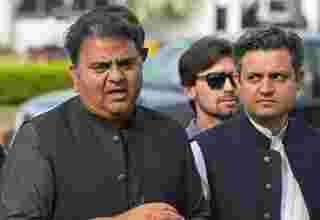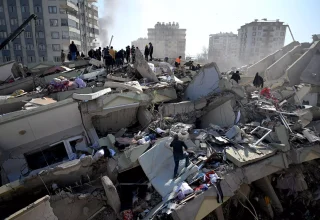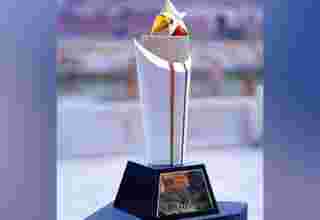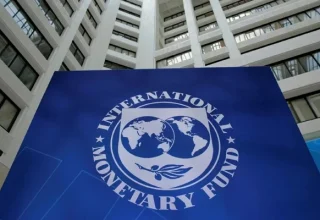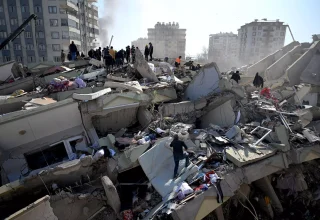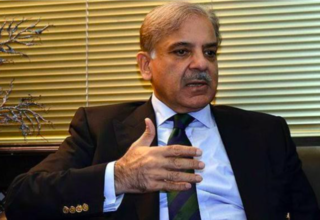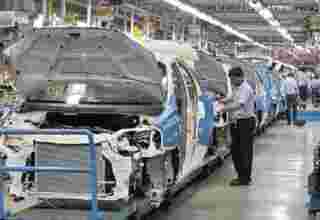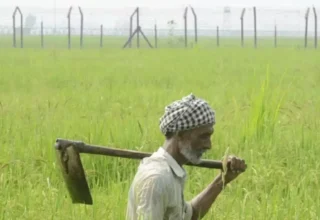LAHORE, Dec 18 (APP): Railway transportation has a crucial role in the economic development of any nation, especially a country like Pakistan by providing a cheaper mode of traveling and boosting economic and industrial activities.
Besides promoting national integration and intra-development, cheaper railways transportation and its large-capacity haulage over long distances facilitate both routine travelers and ferrying industrial goods.
Through this medium millions of people and tones of freight can be transported from one city to another within the country and boost regional trade by extending its network to neighboring states.
Promotion of this sector also generates employment for technical hands, engineers, administrative officers, and the labor class besides providing middle and lower middle classes a cheaper source of the journey.
According to the Pakistan Railways Headquarters record, stretching from Torkham to Karachi, the state-run Pakistan Railways owns 7,791 kilometers (4,841 miles) of track across the country, offering freight and passenger services.
“Economic rationale for rail communication enables transporting raw materials like metallic, mineral, grain, wood, chemicals and other products while moving millions of passengers from one destination to another,” said Chief Mechanical Engineer Pakistan Railways Ghulam Qasim.
Besides ferrying vehicles, agricultural and other important logistics, Railways also play a pivotal role in the transportation of defense equipment both during war and peacetime,” he added.
Ghulam Qasim said after the addition of heavyweight 4000 horsepower locomotives to its fleet, the freight service of Pakistan Railways had considerably improved its revenue generation.
“Most of these digital locomotives were equipped with the latest technology that uses less fuel and is environment-friendly. Each of these locomotives can haul up to 3,400 tones of load,” he informed. “Pakistan Railways’ freight/goods sector earnings had augmented only due to hard work and commitment of its present team headed by Khawaja Saad Rafiq, the Railways Minister.”
According to him, Rs 1000 million had been earmarked to boost Pakistan Railway by replacing obsolete or old signal gear from Lodhran-Multan-Khanewal-Shahdara Bagh mainline section.
During the 2018-19 financial year, Pakistan Railways carried around 70 million passengers across the country. But, the coming years witnessed its continued deterioration with passengers complaining of poor services and common delays.
The PML-N government in 2014 had launched Pakistan Railways Vision-2026 for building new locomotives, restructuring and improving current rail infrastructure, increase in average train speed, improving on-time arrival performance, and provision of best passenger services. But, the PTI government was least bothered to carry forward this policy.
However, after taking over charge this year, the present government has allocated Rs2300 million for the repair of 100 diesel-electric locomotives to improve the availability and reliability of running locomotives.
Director General Public Relations (DGPR), Pakistan Railways, Babar Ali Raza has also informed about several projects like upgrading infrastructure, retrieving railways land from encroachers, overcoming trains delay and meeting maximum punctuality, and improving revenue collection.
“Things are moving in the right direction. Pakistan Railways is doing its best with available resources and human capital,” Ali Raza said. “The day is not far off when Railways will once again become an earning hand for the state.”
The government in the 2022-23 budget has also allocated a sufficient amount for the execution of 36 ongoing and new projects for Railways.
An official document reveals that Rs26,648.036 million have been earmarked for 32 ongoing projects, out of which Rs15974.500 million has been reserved for manufacturing and procurement of 820 High Capacity Bogie-Freight-Wagons and 230 passenger coaches.
“Revamping railway transportation can have multiplier effects on industrial activities,” Senior Vice President, Lahore Chamber of Commerce and Industry (LCCI) Zafar Mehmood Chaudhry. “If operated systematically, Pakistan Railway can help accelerate industrialization and boost the country’s economy.”
He said, in several Asian countries, the emergence of rail transportation has proven concomitant to an industrial take-off and accelerating prosperity.
It is due to concerted efforts of the present government that Pakistan railways have received first batch of around 46 of the total 230 high-speed modern coaches from China with a capacity to run at 160 kilometers per hour speed against the current 120 kilometers per hour speed.
“These modern coaches would offer an improved train travel experience to passengers as they comprise AC parlor, AC standard and economy classes for passengers, including luggage and brake vans,” said a Railways Ministry official.
After receiving 46 completely built units (CBUs) manufactured in China, Pakistan Railways would soon begin manufacturing 184 similar coaches at its carriage factory in Islamabad with the assistance of Chinese engineers under the technology transfer agreement.
“The passenger trains include 80 economy coaches and 80 air-conditioned standard trains, 30 lounge-type trains, and others,” he said and informed, for manufacturing 184 coaches in Pakistan, the Chinese firm will provide raw materials, spare parts, and expertise to the experts working on the project at Pakistan Railways Carriage Factory.
“We have signed another similar contract with a Chinese firm to manufacture 800 freight wagons and 20 brake wagons in Pakistan,” he said.
“After receiving 200 modern freight wagons from China, the country would begin manufacturing 620 most modern wagons at its Mughalpura (Lahore) workshop and the carriage factory in Risalpur.”



